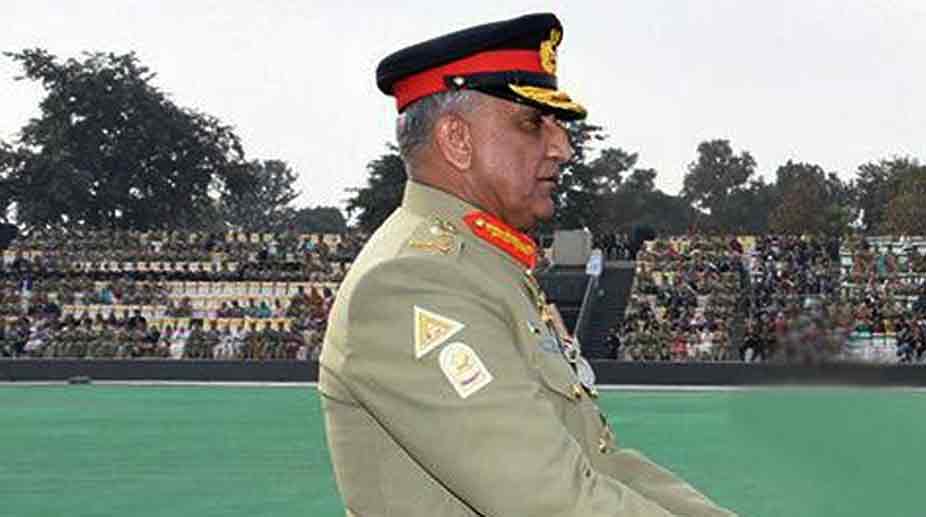US Army’s M-4 rifles leftover in Afghanistan being used by Pakistani terrorists in J-K: DGP Swain
The two terrorists were eliminated in a gunfight at Khandara near the Basantgarh area in the Kathua district.

The striking feature of the Pakistan army chief’s address to the country’s parliamentary “Senate Committee of the Whole” ~ a remarkably unusual development in itself ~ is the indirect overture to India. Whether or not his appeal to legislators attains fruition will hinge on the follow-through, both in terms of the Rawalpindi GHQ’s sincerity to back up General Qamar Javed Bajwa’s signal of intent and the civilian government’s pursuit of foreign and security policies. Viewed from the Pakistani prism, quite the most critical aspect of his presentation has been the assurance that the military is “ready” to back the political leadership in its efforts to normalise relations with India. On the face of it, this is a major gesture on the part of the army chief by any reckoning.
The saffronite fringe might be inclined to greet Gen Bajwa’s address with more than the usual pinch of salt not least because historically the military has been the major impediment towards normalisation of relations. And the Chief cannot but be aware of the grim reality. For now, both the GHQ and the government, however lame-duck in character ahead of the elections, ought to give Pakistan sufficient time to give the proposal a try. The Chief is reported to have told the Senators to make an effort towards improving ties with India. No less crucially, he has couched his critical suggestion with the assurance that the political initiative would be “fully supported by the army”. Markedly, he has advanced his appeal in the company of the brass, pre-eminently the Director-General of ISI and the heads of Military Operations and Military Intelligence.
Advertisement
The timing of his address is no less critical… when bilateral relations have hit the bumps. Gen Bajwa did not deny mistakes in the past and, in a reference to Generals Zia-ul-Haq and Musharraf, said he could not be held responsible for others. He has asked parliament to take the lead in framing foreign and security policies and pledged to implement the government’s actions. On the surface, his suggestion mirrors the certitudes of democracy and the supremacy of the Constitution.
Advertisement
Having emitted a somewhat India-friendly signal, the General iterated Pakistan’s standing cavil that India was fomenting instability and terrorism in Pakistan and had in this regard developed a strong nexus with the Afghan intelligence agency, the National Directorate of Security (NDS). Thus did he play to the legislative gallery. He even took the opportunity to remind the legislators that “a large part of India’s military deployment was against Pakistan”. So too must be field formations on the other side of the Radcliffe Line. However seemingly reassuring Gen Bajwa’s offer, there is little doubt that he has effected a deft balancing act in the national legislature ~ another factor in the power-play in addition to the army and judiciary.
Advertisement